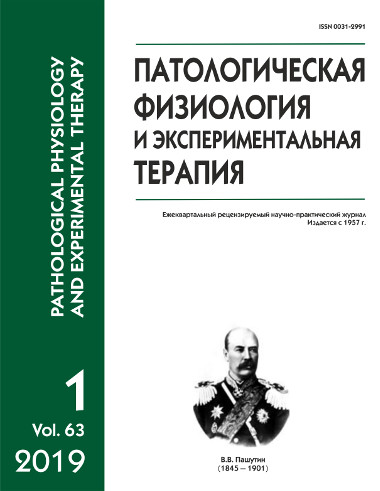Platelet aggregation activity in patients with ischemic stroke, carriers of a genetic polymorphism of some toll-like receptors
Abstract
The study involved 115 patients with ischemic stroke aged 60 (54-66) and 94 healthy respondents older than 51 (45-55). The study showed that predictors of ischemic stroke included the 753Arg TLR2, –249Pro TLR6, –1237C, and TLR9 alleles and the –753Arg/Arg TLR2, –299Asp /Asp TLR4, and –249Pro/Pro TLR6 genotypes with odds ratios from 1.49 to 3.35. Not only the quality of polymorphic markers but also the number of predictive allelic variants are important for the development of stroke. In patients with ischemic stroke in the acute phase and during the formation of cerebral infarction, increased rate and degree of spontaneous platelet aggregation were observed with a subsequent decrease by the end of acute period. Addition of ADP (5 and 1.25 mg/ml) and collagen decreased the rate and degree of platelet aggregation on days 1 and 10 of stroke with an increase in both by day 21. In patients carrying two or more predictive alleles of the toll-like receptor polymorphism in the genome, relatively low rate and degree values of induced platelet aggregation with increased radius of the aggregates were observed in the dynamics of stroke.






